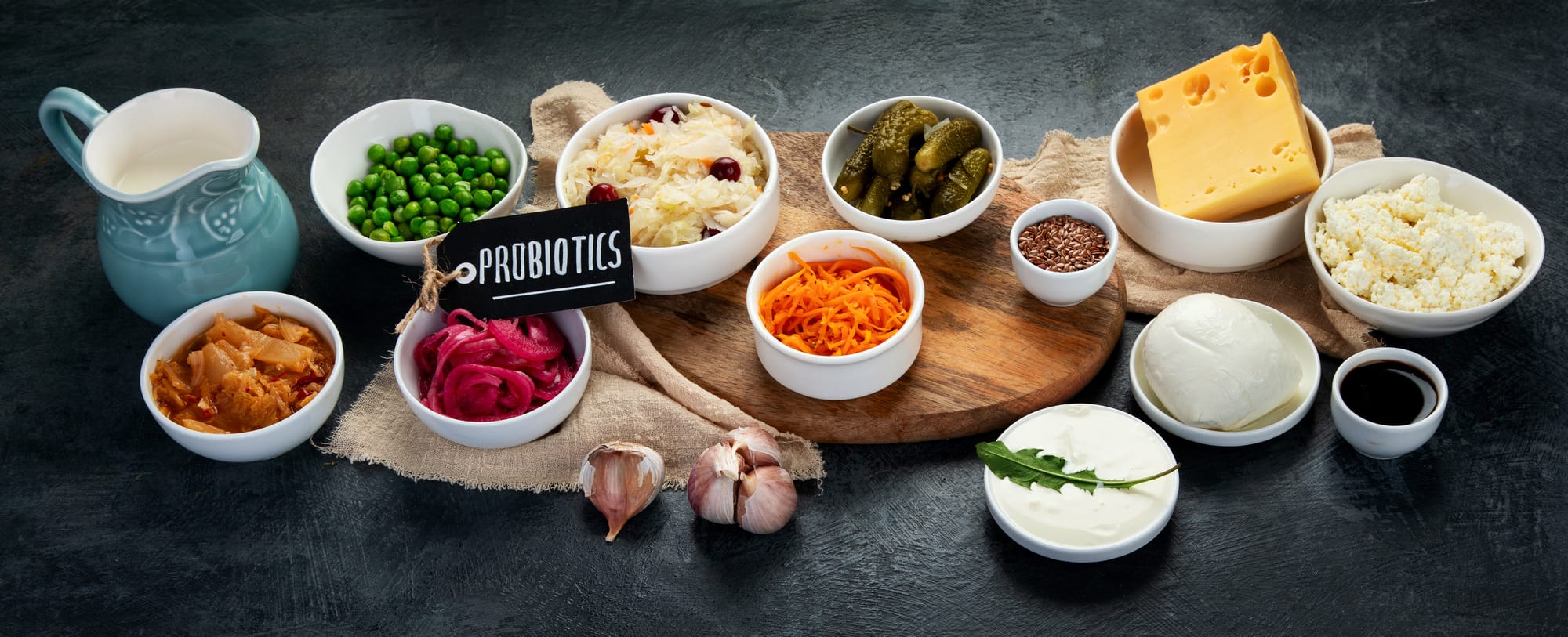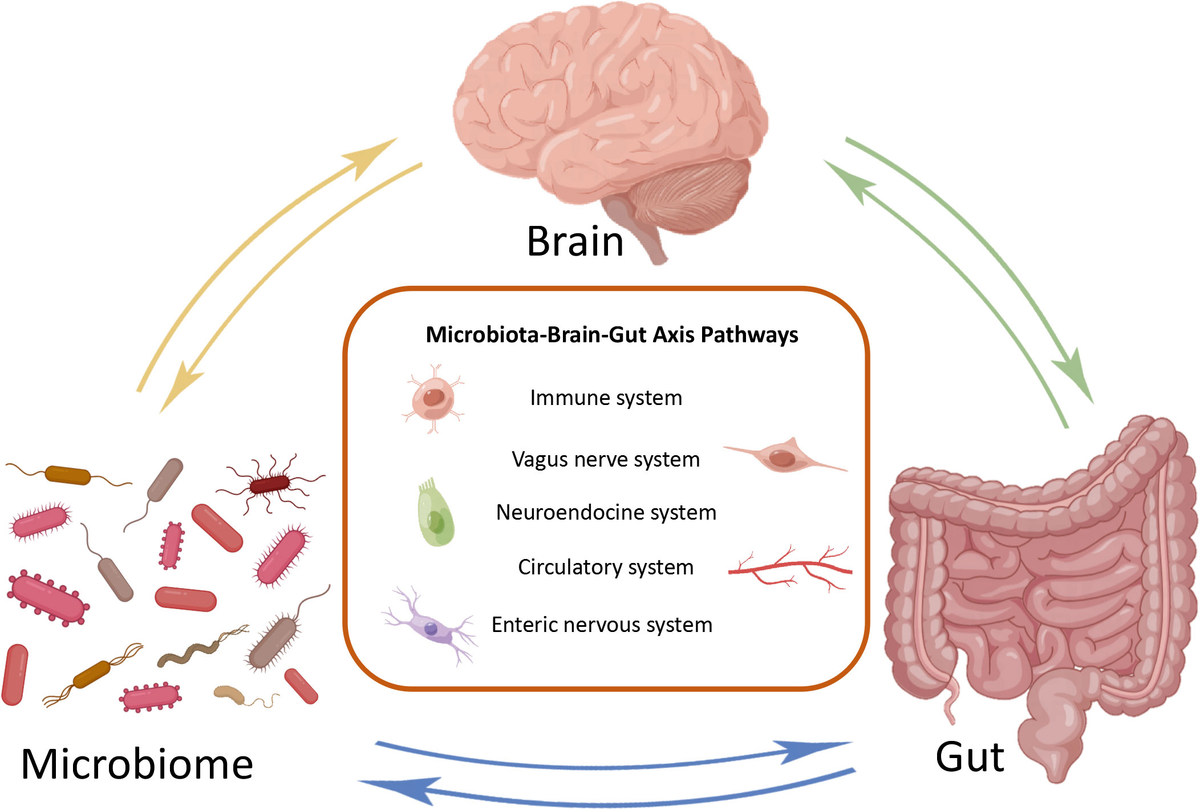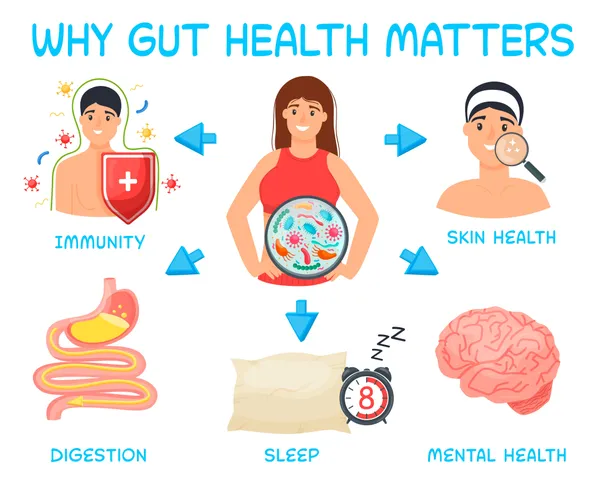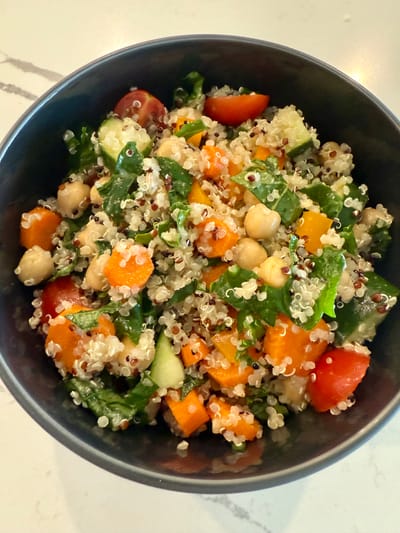On this page
The Science of the Gut Microbiome
The Basics
Your microbiome starts forming from the moment you’re born. It evolves throughout your life based on factors like diet, environment, and lifestyle. Each person’s gut microbiome is unique, which is why gut health can differ widely from one individual to another. The gut is the gastrointestinal (GI) tract, which is a long, continuous tube that runs from the mouth to the anus. It plays a crucial role in digestion, nutrient absorption, waste elimination, and it houses trillions of microorganisms that make up the gut microbiome--a key player in immune function and overall health.
Microbiome Diversity
A diverse gut microbiome, rich in different strains of beneficial bacteria, is crucial for maintaining a balanced internal environment. When certain bacteria become dominant or are wiped out entirely—often due to poor diet or antibiotics—it can lead to imbalance, also known as dysbiosis. Here are some key strains of beneficial gut bacteria to incorporate in your daily life and heal your gut!
Lactobacillus Species
- Lactobacillus acidophilus: commonly found in the small intestines and vagina, it helps maintain an acidic environment, deterring harmful bacteria.
- Lactobacillus rhamnosus: Known for its ability to survive stomach acid and bile, it supports gut health and boosts immune function.
- Lactobacillus plantarum: Found in fermented foods, it aids in digestion and helps maintain intestinal permeability.
Bifidobacterium Species
- Bifidobacterium longum: Assists in breaking down carbohydrates and combats the growth of harmful bacteria.
- Bifidobacterium breve: supports skin health and helps digest plant-based foods.
- Bifidobacterium infantis: Noted for reducing inflammation and alleviating symptoms of irritable bowel syndrome (IBS).
Saccharomyces boulardii:
- A beneficial yeast that supports gut health by preventing pathogen overgrowth and treating diarrhea.
Streptococcus thermophilus:
- Used in yogurt production, it aids in lactose digestion and supports immune function.
Incorporating a variety of these beneficial bacteria through fermented foods or quality supplements can support a balanced gut microbiome.

Why Gut Health Matters for Overall Wellness
Immune Regulation
An estimated 70–80% of the immune system resides in the gut. A balanced microbiome helps your body identify and eliminate harmful pathogens while tolerating beneficial microbes. An imbalance can contribute to autoimmune issues and increased susceptibility to infections.
Nutrient Absorption
Gut bacteria help break down complex carbohydrates and fibers, making nutrients more bioavailable. They also produce essential vitamins like vitamin K2 and certain B vitamins, underscoring how intricately gut health is tied to overall nutrition.
Mental Health Connection
A growing body of research shows a strong link between the gut and the brain, known as the gut-brain axis. The gut produces neurotransmitters like serotonin, which can impact mood and cognitive function. Improving gut health has been associated with reduced stress, anxiety, and even symptoms of depression.
Lifestyle Factors That Affect the Microbiome
Diet
- Whole Foods: A diet rich in fiber, fruits, vegetables, and fermented foods can boost healthy bacteria.
- Excess Sugar and Processed Foods: Refined sugars and processed foods can feed harmful bacteria, disrupting the delicate balance in your gut.
Antibiotics and Medications
- Antibiotics: While life-saving, antibiotics don’t discriminate between good and bad bacteria, often leading to dysbiosis.
- Probiotics and Prebiotics: Replenishing beneficial bacteria with probiotics and nourishing them with prebiotic fibers can help restore gut balance.
Stress and Sleep
- Stress Response: Chronic stress can alter gut flora and increase gut permeability, sometimes referred to as “leaky gut.”
- Quality Sleep: Poor sleep reduces the variety of beneficial bacteria, affecting digestion and immune function.
Practical Tips to Support a Healthy Gut
- Include Fermented Foods: Yogurt (if you tolerate dairy), kefir, sauerkraut, kimchi, and kombucha provide natural probiotics.
- Focus on Fiber: Beans, legumes, vegetables, fruits, and whole grains (or paleo-friendly counterparts) feed beneficial gut microbes.
- Stay Hydrated: Adequate water intake supports healthy digestion and the movement of nutrients through your gastrointestinal tract.
- Manage Stress: Techniques like meditation, yoga, and deep breathing exercises help regulate stress hormones and, in turn, benefit gut health.
- Get Enough Sleep: Aim for 7–8 hours of quality sleep to maintain a balanced gut microbiome.
FAQs
- Q: How long does it take to improve gut health?
A: It varies per individual, but noticeable improvements in digestion and energy can occur within a few weeks of diet and lifestyle changes. - Q: Do I need to take probiotic supplements?
A: While probiotics can be beneficial, they are not always necessary. Many people see results by focusing on a diverse, fiber-rich diet. Consult a dietitian nutritionist for personalized nutrition advice. - Q: Can gut health affect weight management?
A: Yes. An imbalanced microbiome can influence hunger hormones, nutrient absorption, and even fat storage, impacting weight management.
Your gut does so much more than process food; it’s a central hub influencing your immunity, emotional well-being, and nutrient absorption. By adopting gut-friendly habits—such as a balanced diet, stress management, and adequate sleep—you can cultivate a healthier microbiome and experience a ripple effect of wellness throughout your entire body.
Sources















